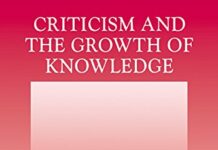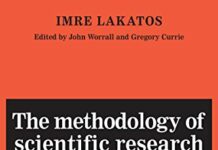
Ebook Info
- Published: 2010
- Number of pages: 459 pages
- Format: PDF
- File Size: 7.08 MB
- Authors: Imre Lakatos
Description
The work that helped to determine Paul Feyerabend’s fame and notoriety, Against Method, stemmed from Imre Lakatos’s challenge: “In 1970 Imre cornered me at a party. ‘Paul,’ he said, ‘you have such strange ideas. Why don’t you write them down? I shall write a reply, we publish the whole thing and I promise you—we shall have a lot of fun.’ ” Although Lakatos died before he could write his reply, For and Against Method reconstructs his original counter-arguments from lectures and correspondence previously unpublished in English, allowing us to enjoy the “fun” two of this century’s most eminent philosophers had, matching their wits and ideas on the subject of the scientific method.For and Against Method opens with an imaginary dialogue between Lakatos and Feyerabend, which Matteo Motterlini has constructed, based on their published works, to synthesize their positions and arguments. Part one presents the transcripts of the last lectures on method that Lakatos delivered. Part two, Feyerabend’s response, consists of a previously published essay on anarchism, which began the attack on Lakatos’s position that Feyerabend later continued in Against Method. The third and longest section consists of the correspondence Lakatos and Feyerabend exchanged on method and many other issues and ideas, as well as the events of their daily lives, between 1968 and Lakatos’s death in 1974.The delight Lakatos and Feyerabend took in philosophical debate, and the relish with which they sparred, come to life again in For and Against Method, making it essential and lively reading for anyone interested in these two fascinating and controversial thinkers and their immense contributions to philosophy of science.”The writings in this volume are of considerable intellectual importance, and will be of great interest to anyone concerned with the development of the philosophical views of Lakatos and Feyerabend, or indeed with the development of philosophy of science in general during this crucial period.”—Donald Gillies, British Journal for the Philosophy of Science (on the Italian edition)”A stimulating exchange of letters between two philosophical entertainers.”—Tariq Ali, The IndependentImre Lakatos (1922-1974) was professor of logic at the London School of Economics. He was the author of Proofs and Refutations and the two-volume Philosophical Papers. Paul Feyerabend (1924-1994) was educated in Europe and held numerous teaching posts throughout his career. Among his books are Against Method; Science in a Free Society; Farewell to Reason; and Killing Time: The Autobiography of Paul Feyerabend, the last published by the University of Chicago Press.
User’s Reviews
Reviews from Amazon users which were colected at the time this book was published on the website:
⭐Clever and very funny. I loved it.
⭐Good read to understand two of the most brilliant – and often under appreciated – philosophers of science.
⭐The tone throughout both Lakatos’ lectures on scientific method and the correspondence is delightfully opinionated and full of contempt. Some examples will convey the flavour.Lakatos on intellectuals. “I happened to say that the Philosophical Section of the British Academy is a bunch of idiots … and the British Academy itself, of which [Kneale] is vice-president, is a bunch of phonies, and also that I shall consider it an honour if I can die without having been elected as their Fellow. It was only then that I discovered that poor Bill Kneale regards it as the acme of his career to have become vice-president of the British Academy and I kicked him where it hurt most. After this clash, it occurred to me that Lionel Robbins was an actual president of the British Academy so I thought I should do an experiment and I went to him and told him that the British Academy consists almost exclusively of common fools. Somewhat to my surprise he said that he had lately come to suspect as much.” (pp. 288-289; cf. also p. 92)Feyerabend on modern physicists. “The younger generation of physicists … may be very bright … but they are uncivilised savages, they lack in philosophical depth” (p. 385) “Good payment, good relations with the boss and colleagues … are the chief aims of these human ants who excel in the solution of tiny problems but who cannot make sense of anything transcending their domain of competence.” (p. 114)One of many Popper jokes. “My main problem is now a crack which has developed on the wall of the downstairs loo. … I am now trying to get a big blow up picture of Sir Karl and put it there in a Victorian gilded frame.” (Lakatos, p. 270)Lakatos on editors. “‘Criticism and the Growth of Knowledge’ was completely rewritten by a young woman at CUP … I think that the woman who did it even mumbled something about making the style uniform … [When] I found out that the book had been edited … I ordered them to return the ms immediately and I solemnly burned the edited copy … and told them to print the originals as I had sent it to them … I also demanded her immediate dismissal” (p. 295-296)
⭐This book looked very promising. After all, anyone whose read either Feyerabend or Lakatos knows that they had geared up to write, “For and Against Method” cut short by Lakatos’s death. We’ve read “Against Method”, just never the “For..”. This book was to be our chance!Why ‘was’? Well, the correspondence that takes up most of this book is funny, personal, warm and caring. If you’re looking for clarification of the thinkers, look elsewhere. Each letter will start “Dearest Imre/Paul, I just got your last article and am going to send you one of mine. Let’s get together in Boston next week. By the way, I’ve something nasty to say about Popper/Kuhn/Searle. Take care, Imre/Paul.” Not very insightful. To be sure, these letters ARE EXTREMELY ENTERTAINING and insightful into each thinker’s personality. For instance, from reading this, it is easy to see that a large reason Feyarabend was a scientific ‘anarchist’ is because he loved to disagree with everyone and taking sides meant he had to agree with someone, thus spoil his devilish fun. In Lakatos, I see someone who wished he could be Feyerabend but could never shake that bugbear called common sense. As I said – insightful into each personality, not each philosophy.There were, however, other parts of the book. The most educational was the opening dialogue (actually written by Matteo Matterlinski) where Feyerabend and Lakatos lay out their views and criticize the other’s. Next, we have the Lakatos lectures which spend 7/8ths of the time reviewing other people’s views and only then explaining his own (very badly, I may add). The two appendices were interesting. Lakatos and Feyerabend wrote on their views towards academic freedom. As one may expect, Lakatos is the more conservative here.Still, I must give three stars as the correspondence was a treat to read. It will have you laughing, shaking your head and oddly enough, coming away with HUGE amounts of respect for both thinkers as their playful intellectual jabs at eachother and willingness to be on the recieving, as well as the giving, end, exemplify how all sciences should conduct themselves.
⭐This book is an excellent introduction to the two great philosophers of the latter half of the twentieth century, Imre Lakatos and Paul Feyerabend. In the enlightening and lucid lectures, Imre Lakatos comes off as the established logician whose views on the philosophy of science is marvelously comprehensible and original, and serves as a springboard for the correspondence. What surprised me was the natural humor and gaiety in the letters, that they promised to annihilate one another in the joint efforts at a book, and yet they could not stop talking about the women in their lives. In a way, the book is also an autobiography, a profile of the two proud and brilliant men and serves as an inside peek at their relationship. Kudos to the editors of this book. I recommend reading this book in order to get your feet wet before tackling on Lakatos’ other books and Feyerabend’s Against Method.
⭐A very thoughtfully edited book by MM. The highlights are the correspondence between F & L and L’s lectures on scientific method. If you enjoyed F’s “Killing time” you will enjoy this book. In the correspondence, L & F discuss everything from work difficulties, depression, academia, Popper, to love affairs with their graduate students. A great memoir of two great philosophers of science.
⭐The book gives a good insight into Lakatos and Feyerabend views and ideas connected with the development and methodology of science, as well as illustrates the personalities of these two philosophers. The “Lakatos’ Lectures on Scientific Method”, mainly due to informal and illustrative language, is an easy to follow and understand piece of philisophic text.
⭐I don’t pretend to understand all the arguments here between Lakatos and Feyerband, but the letters are intelligent and witty conducted by two ‘sixties clever clogs, as well as fun if you can forgive their appallingly infantile attitude towards women.
⭐Das Buch richtet sich in erster Linie an Leser von Feyerabends ‘Against Method’ (Wider den Methodenzwang), und natürlich genauso an Leser von Imre Lakatos. Against Method war geplant als Gemeinschaftsprojekt von Feyerabend und Lakatos, dessen Fertigstellung durch Lakatos’ frühen Tod leider ausblieb. Against Method blieb ein Bruchstück: Ein Angriff auf Poppers Kritischen Rationalismus und dessen Verbindung mit Kuhns Gedanken durch Lakatos. Diese Lücke von Against Method will dieses Buch schließen. Als Einleitung wählte Motterlini einen fiktiven Dialog zwischen Feyerabend und Lakatos. Dies trifft die ursprüngliche Intention des Werkes und hat auch in der Philosophie eine lange Tradition. Ob es jedem als Einleitung hilfreich ist, weiß ich nicht. Anschließend folgen Aufzeichnungen von Lakatos’ Vorlesungen an der LSE von 1973. Also ein Jahr vor seinem Tod. Auf diese 100 Seiten Vorlesung folgt ein kurzes Essay von Feyerabend über den Anarchismus und etwa 250 Seiten Briefwechsel zwischen Lakatos und Feyerabend. Das Taschenbuch hat eine hohe Qualität wie man sie bei der University of Chicago kennt. Außerdem gibt es noch einen umfangreichen Anhang. Meines Wissens ist das Buch die beste Ergänzung, die man zu Against Method finden kann, um den ursprünglichen Gedanken der Schrift nahe zu kommen. Einen Blick wert ist es sicher auch für alle die sich mit Wissenschaftstheorie beschäftigen.
⭐
Keywords
Free Download For and Against Method: Including Lakatos’s Lectures on Scientific Method and the Lakatos-Feyerabend Correspondence 1st Edition in PDF format
For and Against Method: Including Lakatos’s Lectures on Scientific Method and the Lakatos-Feyerabend Correspondence 1st Edition PDF Free Download
Download For and Against Method: Including Lakatos’s Lectures on Scientific Method and the Lakatos-Feyerabend Correspondence 1st Edition 2010 PDF Free
For and Against Method: Including Lakatos’s Lectures on Scientific Method and the Lakatos-Feyerabend Correspondence 1st Edition 2010 PDF Free Download
Download For and Against Method: Including Lakatos’s Lectures on Scientific Method and the Lakatos-Feyerabend Correspondence 1st Edition PDF
Free Download Ebook For and Against Method: Including Lakatos’s Lectures on Scientific Method and the Lakatos-Feyerabend Correspondence 1st Edition



